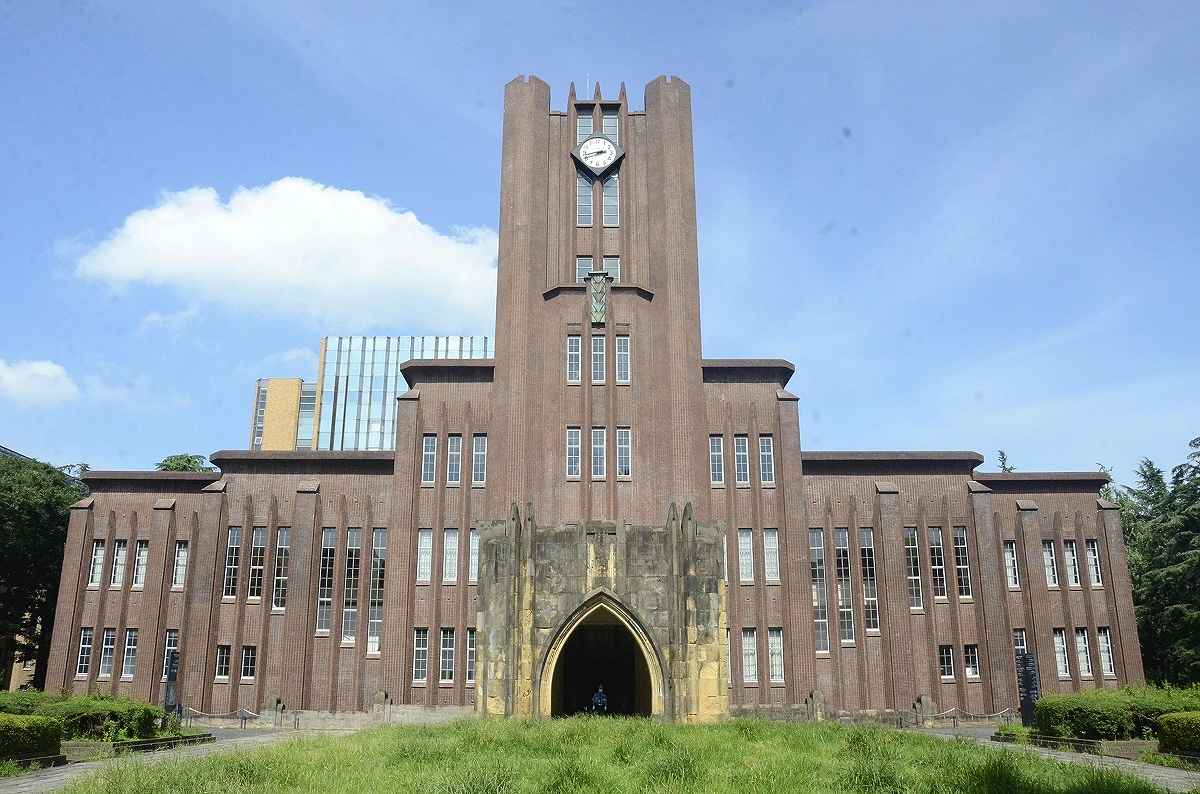
The University of Tokyo in Bunkyo Ward, Tokyo
6:00 JST, April 22, 2023
Ten Japanese universities, including the University of Tokyo and Kyoto University, have applied for the Universities for International Research Excellence program, a government initiative to realize world-class research universities.
Among the other applicants is the Institute of Science Tokyo, which will be created by merging Tokyo Institute of Technology and Tokyo Medical and Dental University. The merger is intended to take place in fiscal 2024.
The Education, Culture, Sports, Science and Technology Ministry plans to select several schools, education minister Keiko Nagaoka said at a press conference after a Cabinet meeting on April 4. The names of the universities will be released after they are accredited by the Universities for International Research Excellence program as early as autumn.
Each accredited university will receive an “unprecedented subsidy” of tens of billions of yen annually for up to 25 years.
The ministry accepted applications to the program from Dec. 23 to March 31. Eight of the universities seeking to participate are national institutions, while two are private: Waseda University and Tokyo University of Science.
The review process will focus not only on such past achievements as the number of research papers, but also on the universities’ presentation of their vision and their commitment to “transform” toward becoming a world-class research university.
The list of universities will be gradually narrowed by autumn, after the ministry reviews their plans to strengthen research capabilities, and their autonomous and accountable governance. Visits to the universities themselves will also be conducted.
A 10-member ministry panel of experts will handle the review process, with funding to approved universities to start in fiscal 2024.
The University of Tokyo has set forth eight projects, including “attracting outstanding young researchers,” under the slogan of becoming “a university where everyone in the world wants to join.”
In addition to doubling the scale of its operations over 25 years through 2049, the University of Tokyo is also touting its plan to secure ¥1 trillion in its own funds in addition to grants, and to generate ¥50 billion in annual investment income.
Nagoya University plans to heighten entrepreneurship based on research findings, as well as international research with foreign universities in Asia and elsewhere.
The subsidies will be financed by investment income from a ¥10 trillion “university fund” set up by the government. The money is expected to be used to improve research facilities, attract outstanding researchers and support doctoral students.
The ministry plans to conduct a second round of applications in the future while monitoring the fund’s performance and other factors.
As for the selection process, education minister Nagaoka said, “We want to make sure their plans are challenging enough to realize world-class research universities.”
Top Articles in Society
-

Producer Behind Pop Group XG Arrested for Cocaine Possession
-

Man Infected with Measles Reportedly Dined at Restaurant in Tokyo Station
-

Man Infected with Measles May Have Come in Contact with Many People in Tokyo, Went to Store, Restaurant Around When Symptoms Emerged
-

Woman with Measles Visited Hospital in Tokyo Multiple Times Before Being Diagnosed with Disease
-

Australian Woman Dies After Mishap on Ski Lift in Nagano Prefecture
JN ACCESS RANKING
-

Producer Behind Pop Group XG Arrested for Cocaine Possession
-

Japan PM Takaichi’s Cabinet Resigns en Masse
-

Man Infected with Measles Reportedly Dined at Restaurant in Tokyo Station
-

Israeli Ambassador to Japan Speaks about Japan’s Role in the Reconstruction of Gaza
-

Videos Plagiarized, Reposted with False Subtitles Claiming ‘Ryukyu Belongs to China’; Anti-China False Information Also Posted in Japan
























